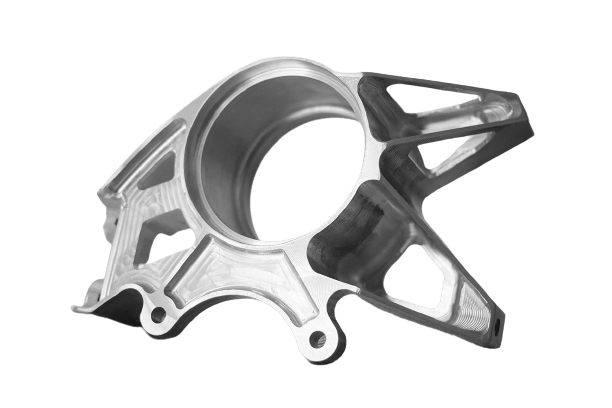Metal CNC Machining Services
Fast Quotes & Tight Tolerances
Aluminum (6061/7075), Steel (1018/4140), Stainless (304/316), Brass, Copper, Titanium.
3/4/5-axis milling, Turning, Swiss turning, EDM & Surface finishing.
ISO-grade QC, CMM inspection, full material certifications available.
Prototyping in 3–7 days.
Volume production in 7–20 days.

Material Capabilities Section
Choosing the proper metal for CNC machining involves considering some factors. The metal you select is critical to the final success. For example, the metal may need to be resistant to high temperatures or bend or break under pressure. When choosing the correct metal, corrosion resistance, workability, pricing, weight, and visual look all play a role.
CNC Machining Processes
3/4/5-Axis Milling
Advanced milling capabilities for complex geometries. We offer expert guidance on tool access and achieve precise surface finish ranges tailored to your specs.
CNC & Swiss Turning
Handling diverse diameters and lengths with tight achievable tolerances. Full support for standard threading including UNC, UNF, and Metric threads.
EDM (Wire & Sinker)
Specialized for tight internal features and high tolerance capability on hardened materials where traditional machining is limited.
Secondary Ops & Finishing
Comprehensive post-processing: deburring, heat treating, anodizing, passivation, plating, powder coating, and laser marking services.
| Capability | Dimensions / Envelope | Standard Tolerance | Typical Finish (Ra) |
|---|---|---|---|
| Milling (3/4/5-Axis) | Up to 60" x 30" x 20" | ± 0.001" (0.025mm) | As machined: 3.2μm |
| Turning (CNC/Swiss) | Max Ø 18" (450mm) | ± 0.0005" (0.013mm) | Smooth: 0.8 - 1.6μm |
| EDM | 15" x 10" x 10" | ± 0.0002" (0.005mm) | Mirror finish avail. |
Tolerances and Quality Standards
Precision & Compliance
We provide baseline tolerances for all metal milling and turning projects, with tighter tolerances achievable upon request. Our process controls align with ISO standards to ensure consistency.
- GD&T Expertise: Full familiarity with ASME Y14.5 standards.
- Inspection Equipment: CMM, Height Gauges, Calipers/Micrometers, Surface Roughness Testers.
- Material Compliance: Material certifications, RoHS, and REACH compliance available.
CNC Design Guidelines for Metal Parts
Optimize your designs for manufacturing efficiency with our key DFM standards.

Minimum Wall Thickness
Ensure stability by maintaining material-specific thickness. For Aluminum parts, we recommend ≥0.8 mm to prevent warping.

Internal Fillet Radii
Design internal corners with radii that match standard CNC tool diameters. This avoids the need for specialized, costly tooling.

Hole Depth-to-Diameter
Adhere to standard depth ratios. Avoid deep, narrow pockets as they are prone to tool deflection and breakage during machining.

Threads & Tolerancing
Use standard thread sizes and inserts. Apply appropriate tolerancing for fit classes to ensure smooth assembly and function.

Surface Finish Expectations
Define Ra ranges clearly. Match your surface finish requirements with the correct manufacturing process to control costs.
Free DFM Resource Pack
Get our complete design guide and technical charts to streamline your production.
22 Years of Precision Excellence
From complex aerospace components to intricate medical devices, explore our extensive portfolio of high-precision parts machined for global industries.

Precision CNC Turning

Blackening Oxide Finish

Heat Treat

Thermal Processing
CNC Turning + Milling

CNC Precision Machining

Custom Shaft

CNC Milling
High Tolerance

CNC Milling

Sandblasted Finish

Robot Part
5-Axis Machining Part

5 Axis Machining
High Performance

CNC Milling

Milled & Anodized
Surface Protection

Anodizing Finish
CNC Milling

Sandblasted
Anodizing

Sandblasted Finish
Anodizing Finish
Frequently Asked Questions
Common questions about our machining capabilities.
